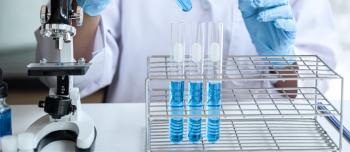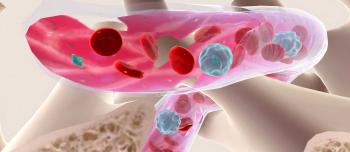Last month Bayer HealthCare announced results from a clinical study that evaluated the safety and efficacy of BAY 94-9027, the company’s investigational long-acting site-specific PEGylated recombinant factor VIII therapy. Known as PROTECT VIII (PROphylaxis in hemophilia A patienTs via directly pEgylated long-aCTing rFVIII), the international, multicenter trial included 134 previously treated adults and adolescents with severe hemophilia A.
Patients in PROTECT VIII selected either on-demand or prophylactic treatment at enrollment. All subjects in the three prophylaxis arms began treatment with the site-specific PEGylated recombinant human factor VIII twice weekly. After a 10-week period, subjects experiencing more than one bleed during this assessment period stayed on two infusions per week at a higher dose. All other subjects were randomized to either every five- or seven-day treatment for six months.
According to a Bayer press release, the study met its primary objective of protection from bleeds through less frequent infusions. In the study, the site-specific PEGylated factor VIII helped protect against bleeds when used prophylactically every seven days, every five days and twice weekly. The compound was also effective for treatment of acute and breakthrough bleeds, with 91% of events resolving with one or two infusions.
In addition, 88% of patients met the pre-defined criterion of bleeding control in the 10-week initial assessment period and qualified for randomization. All patients receiving infusion every five days remained in this treatment arm. 44% of patients in the every five-day treatment arm experienced no bleeds. A median annualized bleeding rate (ABR) of 1.9 was observed in this treatment arm. 74% of the patients receiving infusion every seven days remained in their treatment arm. 37% experienced no bleeds. A median ABR of 3.9 (including noncompleters) was observed in this treatment arm. The 13 patients who remained in the two times per week treatment arm, because of their high bleeding rate during the assessment period, reduced their median ABR from 17.4 to 4.1. This was in contrast to patients who received on-demand treatment and had a much higher median ABR of 23.
“These results are very encouraging,” said Jerry Powell, MD, and Director of the Hemophilia Treatment Center at the University of California, Davis. “We have found that this investigational site-specific PEGylated factor VIII could protect users from bleeds associated with hemophilia A, even when used every seven days. This is a significant advantage over the current standard of care, which requires infusion every two to three days.”
Source: Bayer news release dated February 18, 2014





